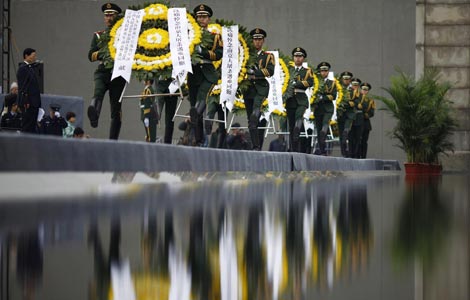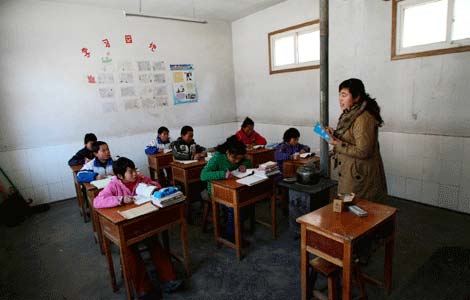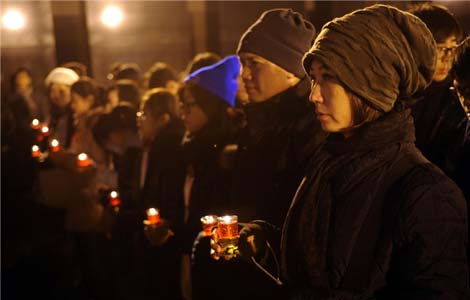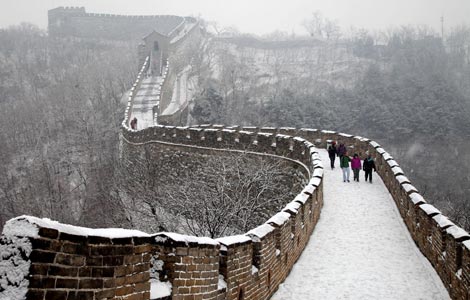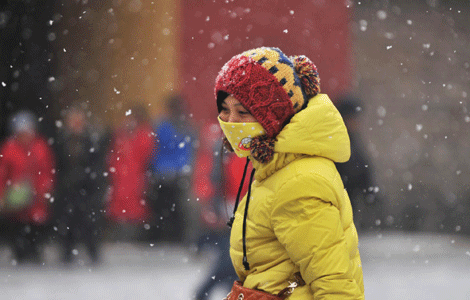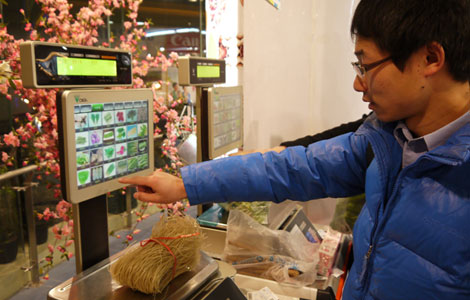
Informal discussions may pave way to mainland-Taiwan peace pact
A spokeswoman for the Taiwan Affairs Office of the State Council said on Wednesday that cross-Straits discussions on a proposed mainland-Taiwan peace pact might first take place within academic and civil circles.
Mainland scholars and commentators said they expect these unofficial discussions can lay a foundation for formal peace negotiations for authorities on both sides of the Straits.
Spokeswoman Fan Liqing said at a weekly news conference that starting the process with academic and civil discussions will help build common ground, consensus and mutual trust between the mainland and Taiwan, thus creating conditions for gradually resolving issues in the future.
She said political differences between the mainland and Taiwan "genuinely exist, and we should never turn a blind eye to them".
The mainland has long maintained that a cross-Straits peace pact should be reached through negotiations in order to safeguard peace and stability across the Straits, Fan said.
She said the mainland is committed to guarding cross-Straits peace and stability, and alleviating security concerns.
Fan added that both sides can initiate contact and exchanges regarding military issues and discuss the establishment of a cross-Straits confidence building mechanism for military security at an appropriate time.
Chen Xiancai, a professor with the Taiwan Research Institute at Xiamen University, said a peace agreement is a sensitive issue involving high-level dialogue, and the Taiwan side has been expressing some apprehension over this issue.
"The most prominent obstacle in the way of formal negotiations between the two sides is insufficient mutual trust," he said. People from across the Taiwan Straits are looking forward to a peace deal and hope the unnecessary rivalry between the two sides can come to an end, he added.
"Therefore, I think it is reasonable and feasible for scholars and people from civil organizations to first discuss this issue, and I hope through communication they can figure out what the fundamental differences are."
Chen suggested Taiwan authorities stop ducking the issue and take concrete measures to remedy ideological problems, which were once used to alienate Taiwan people from the mainland and hinder negotiations.
Cao Jingxing, a well-known news commentator at Hong Kong-based Phoenix Television, told China Daily: "Experts and scholars from both sides whom I have talked with all believe that we must find a solution to elevate mutual trust in not only economic fields, but also political affairs. I think it is absolutely meaningful if people from outside the authorities can sit down and explore these topics.
"Actually, because this year marks the 20th anniversary of the signing of the 1992 Consensus, many seminars and forums have been convened in Beijing, Shanghai and Taipei to honor the achievements made over the past two decades, and many attendees have expressed their willingness to discuss topics pertaining to the peace pact," he added.
He said Taiwan authorities must drop their outdated concerns and embrace whatever is beneficial to the Chinese nation.
Fan also said at Wednesday's news conference that two trade organizations, one from Taiwan and the other from the mainland, have been given approval to set up offices across the Taiwan Straits.
The Taipei World Trade Center, a leading trade group in Taiwan, was cleared to set up offices in Beijing and Shanghai, she said.
The mainland-based China Chamber of Commerce for Import and Export of Machinery and Electronic Products also got approval to set up an office in Taipei, Fan said.
Fan also expressed support for cultural institutions that wish to open offices across the Straits.
Xinhua contributed to this story.
zhaolei@chinadaily.com.cn
